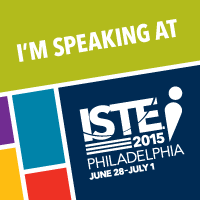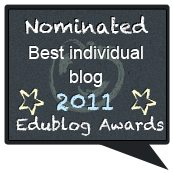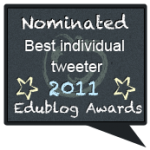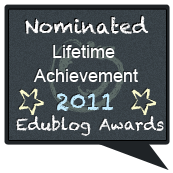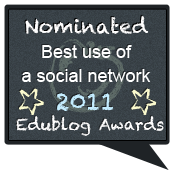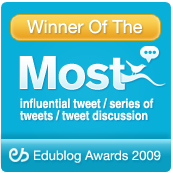This weekend I was again very fortunate to attend what many consider the premiere education Conference held each year in Philadelphia, EDUCON. It is the sixth year of this conference and it seems to just keep getting better with each year. It is not at a huge venue. It has no Exhibitors, so there is no Exhibitor Hall. There are no massive dining rooms. There are no planned Gala events. There is no schedule of Keynote speakers. Participation is limited to about 500 people. Students, rather than adults are the support staff at the conference. Without all, or even any of the usual components of a national education conference, how is this a premiere Education Conference?
EDUCON takes place in Philadelphia each year on the weekend between the last weekend of the NFL playoff games and the weekend of the Superbowl.
The venue is a school, The Science Leadership Academy. Compared to many American high schools it is relatively small. For that reason participation numbers are comparatively small when considering other education conferences. The result is a dimension to this conference lacking in others.
The close proximity of participants in a small area with chairs and tables strategically placed in hallways all provide an intimacy not experienced elsewhere. This is important because the very people who are presenters at EDUCON are also participants at the presentations of others. They are also the very people one sits next to at lunch and in the hallways and at other sessions. Engagement is constant and meaningful with educators and thought leaders. It is also happening at all levels: student, teacher, administrator, parent, author, and consultant.
Here is the other difference; every presentation is not a presentation, but rather a conversation. A team of people moderates most of these conversations. Each conversation usually has a group participation component. Group work is very common at this conference. The follow-up discussions from the group work are the driving force to what many refer to as the deep thinking provided at this conference.
I think my greatest take away from this conference had nothing to do with the ideas of Entrepreneurship or innovation, which seemed to be a threaded theme of this conference. It was the focus of two panel discussions. I am having a difficult time defining those terms in the context of education. However since it is an up and coming and ongoing theme among some thought leaders, I am sure we will all spend more time determining these definitions as well as how they pertain to education.
What I came away with was to me a more relevant idea as an educator. I saw a focus on teaching learning as a skill and not a consequence of content delivery. The ideas of thoughtful, and deep questioning of a subject, before tackling it, as a problem to solve was a striking revelation. The idea of teaching the use of the process to acquire the content knowledge as opposed to just providing the content made so much more sense to me. All of this emphasized the “How” to learn as opposed to “What’ to learn. I saw this as a much more meaningful goal for educators. Teaching the skill of learning as the focus of the lessons is a shift from what many do. Learning too often is a consequence of content being poured into the heads of students. Some students get it some students don’t. Throw enough wet spaghetti at the wall and some will stick. That seems to be a hit or miss method for success. More often than not, there is less success.
Teaching Learning as a skill certainly increases the chance for successful learning. That is what I took away. Inquiry based learning, and problem based learning are much more in line with teaching learning as a skill than lectures. Lecture and direct instruction will always have a place in education but they should never be the focus for method of delivery. The question is what percentage of our educators continue to do so, often because that is the way it has always been?
EDUCON challenges the status quo of education. EDUCON promotes deeper thinking leading to more meaningful questioning. If we are ever to find the best answers to our difficult problems, we will need to be asking the right questions. EDUCON promotes that. I believe I am a better educator for attending this conference. The shift in education, that we all strive for, will begin with the type of thinking promoted at EDUCON.



